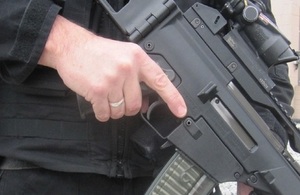Fourteen members have been newly appointed to the committee that oversees the rules for how charities across the UK and Ireland report on their finances.
The move is part of an attempt to make the accounts of charities more user-friendly for the public, funders and others, and to make preparation easier for smaller charities. For the first time, the committee will include organisations which work closely with charities and have a working knowledge of charity accounts, as well as greater membership from smaller charities.
The Committee is known as the SORP Committee. The Charities Statement of Recommended Practice (the SORP) is the set of rules which governs charity financial reporting and accounting for charitable companies (which may be small) and larger charities with an income of £250,000 and more. The main purpose of the SORP Committee is to identify potential changes to the SORP and advise the charity regulators who make the SORP rules.
The previous committee had been in place for nearly 5 years and is being reformed following the SORP Governance Review. Our intention is to improve the process and focus more on those reading and using charity accounts.
As previously, membership of the SORP Committee is drawn from all jurisdictions preparing accounts under UK-Irish accounting rules (Generally Accepted Accounting Practice) which have a charity regulator – namely England and Wales, Scotland, the Republic of Ireland and Northern Ireland
CCNI’s Myles McKeown, Joint Chair of the SORP Committee, said:
The SORP has an important role to play in setting the accountancy standards for charities and, as highlighted by the recent governance review, it is vital the SORP develops in a way that meets modern expectations.
One key way to achieve this is to build a committee with as wide a representational viewpoint as possible, in particular from the individuals, groups and organisations which have practical experience of using the SORP.
In late 2019, a panel of representatives from the Charity Commission for England and Wales (CCEW), the Charity Commission for Northern Ireland (CCNI) and the Office of the Scottish Charity Regulator (OSCR), alongside an observer member from the Charities Regulatory Authority (CRA), commenced interviews across the UK and Ireland to find potential new committee members.
Following that assessment process, the following applicants from each of the target representative group, have been appointed.
Smaller charities:
- Diarmaid Ó Corrbuí (Republic of Ireland)
- Tony Clarke (Northern Ireland)
- Neal Trup (England and Wales) and
- Michael Brougham (Scotland)
Funders:
- Max Rutherford (Association of Charitable Foundations, England and Wales)
Commentator/academics:
- Noel Hyndman (Queens University, Belfast, Northern Ireland)
Auditors, preparers and organisations:
- Daniel Chan (PWC, England and Wales)
- Carol Rudge (Grant Thornton, England and Wales)
- Gareth Hughes (Diocese of Down and Connor, Northern Ireland)
- Tom Connaughton (Charities Institute Ireland, Republic of Ireland)
- Caron Bradshaw (Charity Finance Group, England and Wales)
- Jenny Simpson (Wylie & Bisset LLP, Scotland)
- Joanna Pittman (Sayer Vincent, England and Wales)
- Tim Hencher (Scottish Council for Voluntary Organisations).
The appointments mean the new committee will have a maximum membership of 14, ensuring a strong mix of individuals and organisations with the skills and capabilities to take the SORP forward.
CCEW’s Nigel Davies, Joint Chair of the SORP Committee, said:
The recruitment campaign attracted high calibre candidates from across the board. We would like to thank everyone who took the time to apply – it really is heartening to see such interest in making charity financial reporting better.
OSCR’S Laura Anderson, Joint Chair of the SORP Committee, said:
We would also like to congratulate the successful appointees and we look forward to seeing the reformed committee commence work on developing an accounting framework that best serves the needs of charities and the wider public interest. This is an exciting step in the new SORP development journey.
For more information about the SORP, the SORP-making body and advisory SORP Committee, please refer to the dedicated website.
ENDS
Notes to Editors:
-
The SORP-making body is approved by the Financial Reporting Council (FRC) and its job is to oversee the development of the SORP and its publication and to ensure that the SORP is consistent with the FRC approved accounting standards.
-
The SORP is used by charities that prepare their accounts to give a ‘true and fair’ view in accordance with UK-Irish Generally Accepted Accounting Practice (GAAP).
-
The four charity regulators of the UK and Ireland are the Charity Commission for England and Wales (CCEW), the Scottish Charity Regulator (OSCR), the Charity Commission for Northern Ireland (CCNI) and the Irish Charities Regulator (CR). The SORP-making body is made up of CCEW, OSCR and CCNI. The Irish Charities Regulatory Authority is an observer on the SORP-making body.
-
The interview panel was made up of Laura Anderson from OSCR, Nigel Davies from CCEW and Myles McKeown from CCNI.
-
Adoption of the SORP is mandatory in the charity law jurisdictions in the UK but is currently voluntary in the Republic of Ireland. Jelena Griscenko from the Charities Regulatory Authority, was an observer on the Charities SORP Committee interview panel.

